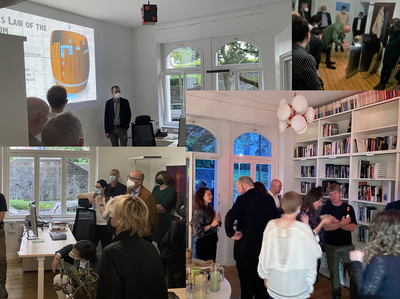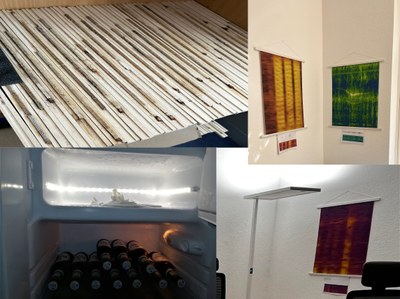Planetary Lecture: Planetary Law | May 10, 2022
The Planetary Lecture Series opened with a talk on "Planetary Law for the Anthropocene." Earth System Law pioneer Prof. Dr. Dr. Louis Kotzé (North West University, South Africa) proposed a transformation of international environmental law in order to respond more appropriately to planetary phenomena than has been the case so far: Instead of humans, legal principles should focus on the Earth System, especially in the so-called Anthropocene. Accordingly, Prof. Kotzé centered his lecture around the question of how such Earth System Governance could be designed. A corresponding governance approach should emphasize the planetarily significant shaping power of humans, but always relate this power to planetary forces and consider humanity as part of the Earth System. The full recording of the lecture as well as the following discussion opened by Prof. Dr. Thilo Marauhn (Public Law and International Law, JLU) is available on YouTube.
The warm spring weather exceeded expectations and set the scene for the subsequent networking meeting of the panel members. The Panel was invited to the new premises to inaugurate the new 'Planetary Hub' and to introduce the current Fellows and their work to the Panel members. First, Geoscientist Claudia Hartl fascinated the assembled with drill core samples of beech trees from the Rosbach city forest and explanations of their history. Colorful, abstract-looking posters formed the centerpiece of Clemens Finkelstein's short lecture on vibrations. The illustrations show the vibration patterns of various ambient sounds of the panel office: Spectators could marvel at the vibratory signatures of church bells across the street, rail traffic behind the building, and a helicopter flying overhead. However, due to its content, the demonstration by Mathias Kessler attracted the most attention: the artist presented his work "The Arctic Ocean - Failed Hope", a refrigerator filled with beer. At first glance, an invitation to socialize, a 3D version of Caspar David Friedrich's "The Arctic Ocean" lies hidden in the icebox. By opening and closing it time and again, the slight recurring increases in temperature cause the ice to slowly melt. Hereby, Kessler points to the serious consequences that human actions can have on the planet.
With the opening of the beer fridge, the formal part of the meeting ended and at mild temperatures, the panel members gathered in the library and on the balcony for a leisurely chat. The panel team would like to thank all participants, especially JLU President Prof. Dr. Joybrato Mukherjee, for coming and hopes for further lively exchange among Panel members.


